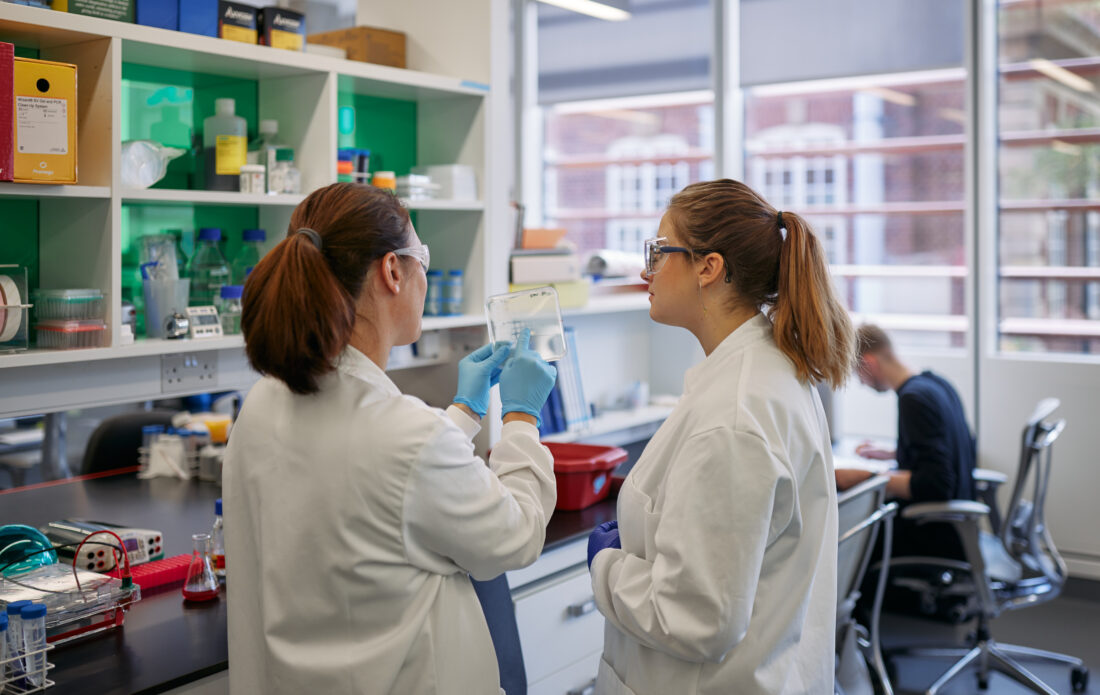
The Dunn School delivers the BM Principles of Pathology course to the second-year medical students. The course organiser is Professor Ulrike Gruneberg. We also deliver three options for second-year BMS students. The practical organiser for the BMS Immunology and Microbiology course is Dr Rachel Exley.
Dunn School scientists also co-ordinate three options in the Final Honours School (FHS) of Medical and Biomedical Sciences for third-year students. Professor William James organises the Infection Biology Option, Professor Chris Norbury organises the Option in Cancer, while Professors Ulrike Gruneberg and Anton van der Merwe jointly organise the Molecular Pathology Option.
Please check the pre-clinical Medicine and Biomedical Sciences course websites for more details on these courses.
Principles of Pathology
The Dunn School delivers a state-of the-art course introducing the principles of infectious diseases, innate and adaptive immunology, as well as cancer and cardiovascular disease using a range of teaching approaches including practical classes, data analysis sessions and symposia
We deliver the Principles of Pathology Course, a state-of-the-art course that introduces the principles of infectious diseases, innate and adaptive immunity; as well as cancer and cardiovascular disease. We use a range of teaching approaches, including:
- Clinical Science symposia
- Practical class demonstrator training sessions run by Dr Rachel Exley and Professor David Greaves
- Introduction to the principles of flow cytometry with clinically relevant examples to work through in class
- Bacterial killing assays and data analysis
- Centralised start-of-term question papers for college tutors.
The course exemplifies research-led teaching. All the people who lecture on the course run their own laboratories (mostly in the Dunn School), have published papers in top-tier journals and are invited to speak at international medical conferences. Students are exposed to cutting edge research into the mechanisms of disease with hands-on experience of key techniques.
The course also provides researchers at the Dunn School with an ideal opportunity to gain their first experience of teaching, either by giving tutorials or acting as discussion group leaders in seminars or demonstrators in practical classes. Prior to classes, we offer extensive training and support to demonstrators (organised by Professor David Greaves and Dr Rachel Exley). Contact Gemma Needham for more details.
Final Honours School (FHS) Options in Infection Biology, Cancer and Molecular Pathology
The Infection Biology Option currently has a strong focus on viral pathogens and anti-viral immunity. The Cancer Option encompasses the molecular and cellular basis of pathogenesis as well as immunotherapies and other new approaches to cancer treatment. The Molecular Pathology course includes themes covering inflammation and innate immunity, immune recognition, cell division and disease and the ‘language’ of eukaryotic genes and their regulation.
Integrative teaching sessions in the final term prepare students for individual aspects of the written FHS exams. If you have a University of Oxford login, details of courses may be found here.
Undergraduate Research Projects
Dunn School research groups regularly host research projects for Oxford undergraduate students as part of their course. If you are a current Oxford student, please contact the head of research group you are interested in directly.
Are you a current Dunn School postdoc or graduate student interested in gaining teaching experience?
You can find more information on our intranet.